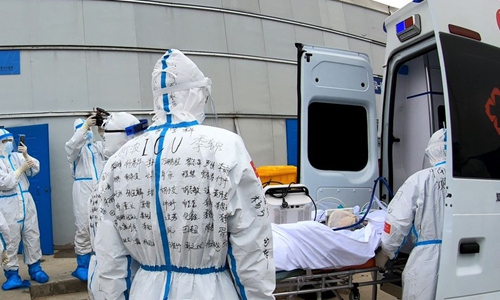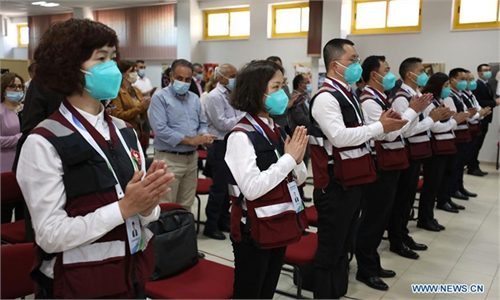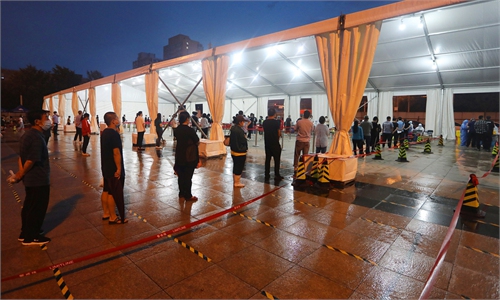LIFE / RELATIONSHIPS
New report: COVID-19 patients suffer from poorer mental health than SARS survivors

A video screenshot shows medical staff transferring a COVID-19 patient at the Leishenshan hospital in Wuhan, central China's Hubei Province, on April 14, 2020.Photo:Xinhua
A new report showing that the mental health of COVID-19 survivors is worse than that of SARS survivors was released at a forum in Guangzhou, South China's Guangdong Province on Saturday.The report covered 50,000 samples and was carried out by the Chinese Academy of Sciences and hospitals in Beijing.
The report revealed that survivors of COVID-19 showed prominent mental health issues: 31.6 percent of those surveyed show symptoms of anxiety, while depression ranked at 27.9 percent, insomnia 29.2 percent and acute stress 24.4 percent, according to a news report from Yangchengwanbao, a newspaper based in Guangdong Province.
The report also showed that medical staff, especially nurses, have suffered from anxiety, taking up 46 percent among medical staff.
Additionally, frontline workers and their families, as well as low-income people in communities are also susceptible to mental health issues, reflecting that the epidemic has influenced the general public's mental health.
It is worth noting that compared with SARS survivors, the mental health of COVID-19 patients appears to be more serious. Investigations show that incidences of depression, anxiety, insomnia and acute stress in COVID-19 cases is as high as 75 percent, 71 percent, 68 percent and 71 percent respectively, while post-traumatic stress disorder (PTSD), anxiety and depression among SARS survivors was 41.7 percent, 17.5 percent, and 11.1 percent respectively.
COVID-19 survivors not only suffer from physical pain, but also endure an unprecedented fear of death and are prone to have negative feelings, the report said.
Peng Kaiping, dean of the School of Social Science and director of the Department of Psychology at Tsinghua University, told the Global Times on Monday that the scientific report has shown that the physical pain that patients suffer can continue to worsen up to three months after infection.
"People's stress reactions such as depression, PTSD, and anxiety need a period of time to emerge, and the most importance thing for them is to have awareness and knowledge when facing and countering these problems.
He suggested positive thoughts (self-reflection and talking to someone), emotions (feelings of gratitude) and motivation (cleaning one's room, watching films and developing a hobby) can help patients recover.
Meanwhile, he noted that Tsinghua University has established a hotline number (010-4000100-525) to aid both Chinese and foreigners who need help.
Besides the hotline number, an association of psychiatric specialists has been established to share medical resources through high technology, train talent and provide long-distance medical support.
The association includes 63 units from five provinces including South China's Guangdong Province, the Guangxi Zhuang Autonomous Region, Hainan Province, Southwest China's Yunnan Province and Central China's Hunan Province, according to the report.




